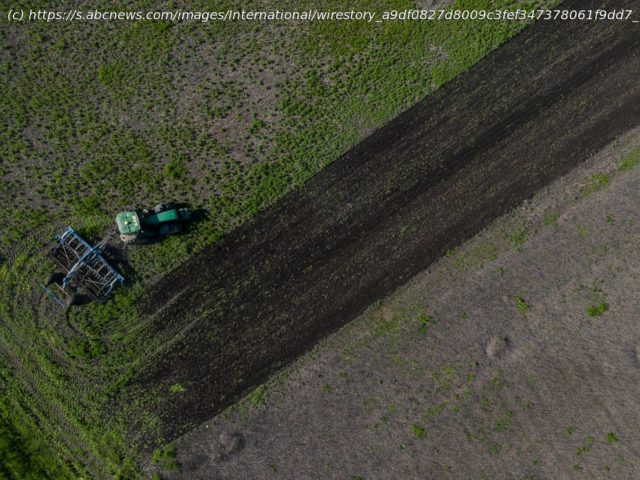Array
A grassy lane rutted with tire tracks leads to Volodymyr Zaiets’ farm in southern Ukraine. He is careful, driving only within those shallow grooves — veering away might cost him his life in the field dotted with explosive mines.
Weeds grow tall where rows of sunflowers once bloomed. Zaiets’ land hasn’t been touched since the fall of 2021, when it was last seeded with wheat. Now, it’s a minefield left by retreating Russian forces.
Zaiets eschewed official warnings and demined this patch of land himself, determined not to lose the year’s harvest. He expects that 15% of his 1,600 hectares (4,000 acres) of farmland was salvaged.
Workers like Victor Kostiuk still spot mines, but he’s ready to start the tractor.
“We have to do it,” he says, “Why be afraid?”
Across Ukraine, the war has forced grain growers into a vicious dilemma. Farmers in areas now free from Russian occupation are risking their lives to strip their land of explosives before the critical spring planting season. Even then, they must cope with soaring production and transportation costs caused by Russia’s blockade of many Black Sea ports and recent restrictions that neighboring countries imposed on Ukrainian grain.
The dual crisis is causing many farmers to cut back on sowing crops. Bottlenecks in shipping grain by land and sea are creating losses, with expectations of a 20% to 30% reduction in grain output, poorer quality crops and potentially thousands of bankruptcies next year, according to industry insiders, Ukrainian government officials and international organizations.
The “drastic reduction” of grain crops potentially threatens global food security, said Pierre Vauthier, head of the U.N. Food and Agriculture Organization in Ukraine. “That is the main thing everybody eats. So that’s why it is a big concern.”
More than a year since Russia’s invasion, the Ukrainian agriculture industry is starting to see the full impact of what’s been dubbed “ the breadbasket of the world,” whose affordable supplies of wheat, barley and sunflower oil are crucial to Africa, the Middle East and parts of Asia where people are going hungry.
The FAO says 90% of agricultural businesses lost revenue and 12% reported lands contaminated with mines. Land planted with grain dropped last year to 11.6 million hectares (28.6 million acres) from 16 million hectares (around 40 million acres) in 2021. That’s expected to fall to 10.2 million hectares (25.2 million acres) this year.
In the southern Kherson province, between the threat of missiles from the sky and mines on the ground, farmers make the same, often tragic, calculation: Take the risk and plant or lose their livelihoods.






